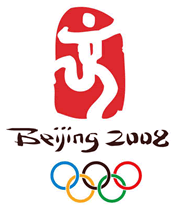
The global community will learn much about China in two years, when Beijing plays host to the 2008 Olympic Games (Aug. 8 to 24). And, to hear from the average Chinese citizen, the world has much to learn, according to interviews conducted earlier this year by a University of Notre Dame professor.
Jonathan Noble, a visiting assistant professor of East Asian languages and literatures, has compiled a DVD featuring interviews withBeijingresidents from diverse social and economic backgrounds on what they think about their country hosting the Olympics. He was assisted on the project by Kevin Abbott, an educational technology specialist at the University.
The participants were asked seven questions concerning the Olympics and their relationship toChinas contemporary social and culture environment. The respondents were generally positive about the Olympics, saying they plan to serve as volunteers and that the Games will mark a significant turning point in the nations history.
Most notably, the interviewees believeChinaismisunderstoodworldwide and hope that the media coverage of the country during the Olympics will correct misperceptions.
They (the Games) will revise the way the world views and understandsChinaandBeijing,said Gao Ming, an attorney.Because, perhaps,Chinahas been viewed as a traditional country, and now there is this idea of the Chinathreat,actually the Olympics may change the views of foreigners who come toBeijing Chinais actually both a tolerant and friendly country that possesses a modern consciousness. It is also a very advanced and modern country.
Dong Shuzhen, a retiree, said that the media focus during the Olympics willdisplayChinas effective role within the global community Before, foreigners consideredChinato be the sick patientofEast Asia.
Lui De, the owner of a design company inBeijing, recognized that positive and negative media accounts ofChinawill be written and broadcast in two years.
If you host the Olympics, lots of media from the West will be reporting,he said.Of course, during the reporting, some things will be good, others bad. Thats not a problem. This information will let people in the West have an objective understanding ofChina, ofBeijing, and ofBeijings current development.
Not all of the responses to various questions were quite so profound.
The attorney, Gao Ming, for example, said foreign visitors should know three things aboutChinain advance of the Olympics:how to use chopsticks cross the street and use the squat toilets.
The interviews are available in full on a DVD titled2008 Beijing Olympics: Digital Interview Bank Project,which was produced to provide Chinese language teachers, researchers, students, the media, government agencies and the general public with perspective on the complexity of contemporary China. Noble and Abbott hope to add the project by conducting follow-up interviews during the next two years.
Noble joined the Notre Dame faculty in 2003 and specializes in modern Chinese culture. His many contacts in the country facilitated the interview process.
To request a copy of the DVD, contact Noble at jnoble@nd.edu .
TopicID: 18842